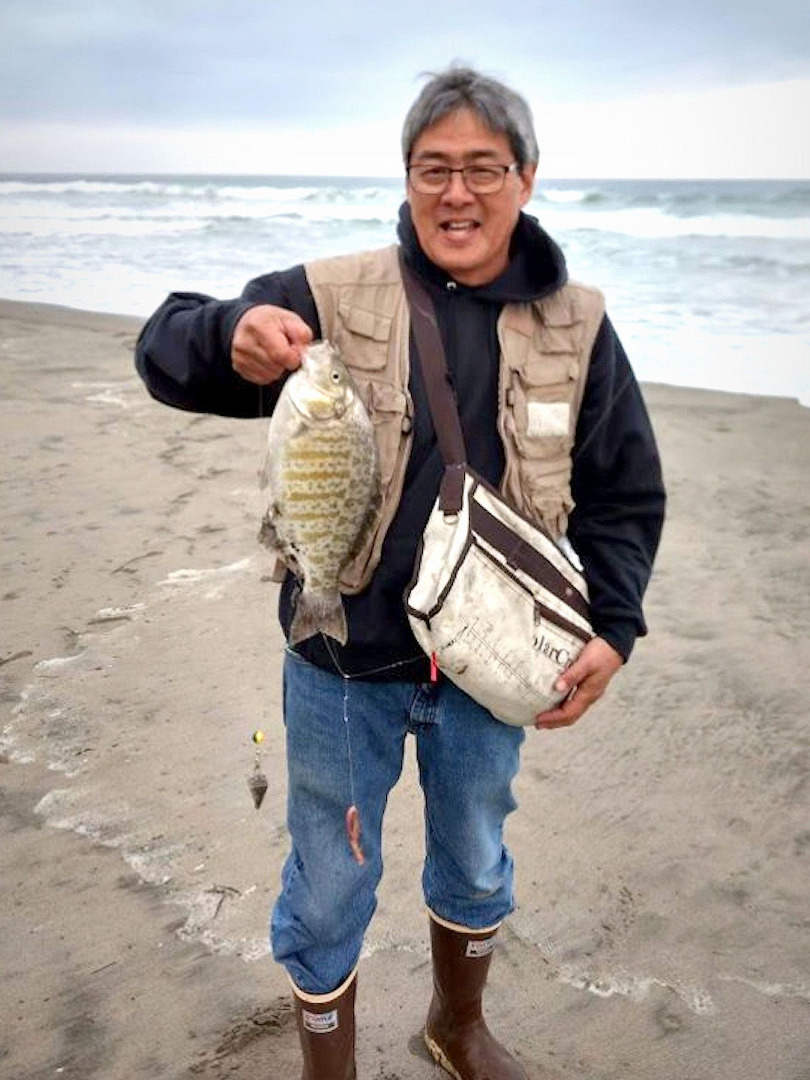
Report Date:
http://www.santacruzkayakfishing.com
Hundreds of anglers are preparing for the Annual Sand Crab Classic Perch Derby, to be held this year on March 14th. Over 300 contestants sold out the derby entrance within three hours of ticket sales being announced in early January. The derby is in its 16th year providing fun and food to friends and families, plus stellar bragging rights for those who take home the big trophies each year. All proceeds go to support the Monterey Bay Salmon and Trout Project.
Last week, we extolled the joys of surfcasting from the perspective of being easy and fun. And, it is that for sure. Surfcasters with the simplest equipment and approach can find quick success once the basics are dialed in. As with any fishing pursuit however, drilling down and repeated practice can reveal a self-sustaining complexity that grows ever larger upon continued examination.
Most surfcasters prefer to fish for perch and striped bass when a high tide coincides with sunrise or sunset. High tide means deeper water pockets are closer to the beach. It’s these troughs and “holes” that most often attract feeding perch and roving striped bass. In the Monterey Bay area, we get wind almost every day. Early mornings can be very still, and sunset evenings often features a gentling of the winds that have blown all afternoon. It is just an educated guess on our part, but the surf fish seem to be more active in lower light conditions.
This means dusk and dawn of course, but also includes overcast, cloudy or foggy days. Remember, surfperch and even the large stripers are potential prey as well as being predators themselves. Lower light conditions decrease their visibility to other fish or mammals that want to eat them. We believe lower light can foster a more aggressive bite as well. If the food item for our target fish is only visible for a shorter length of time and a closer proximity, our target fish is more likely to strike quickly. For us as anglers, the result can be slam-bang hookups. Which, to quote Carl Spackler, “is nice.”
Surfcasters looking for the biggest perch may want to try concentrating on the closest trough to the beach. Just behind the shorebreak, there is often a gully of deeper water. Larger fish are likely to hunt in that food-rich environment, and the larger fish are strong enough to handle the whitewater tumult and heavy currents. With kicked-up sand the visibility is lower, which can encourage the aggressive hits mentioned above. Using larger swimbaits, stickbaits or small shiny Kastmasters or Krokodile spoons can be very productive for both perch and striped bass. You may catch fewer perch using the larger lures, but they are likely to be the bigger model.
Report Date:
The greatest thing about surfperch fishing is the consistent and constant accessibility. For residents, they are literally “The fish at......
Report Date:
Mild weather and calm seas resulted in an uptick of positive results for anglers fishing the Monterey Bay this week.......